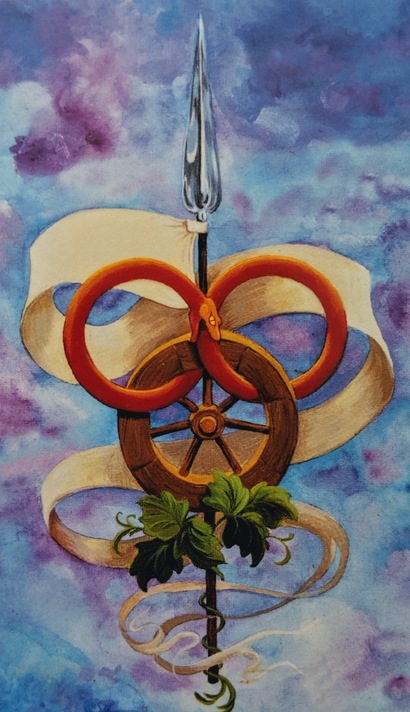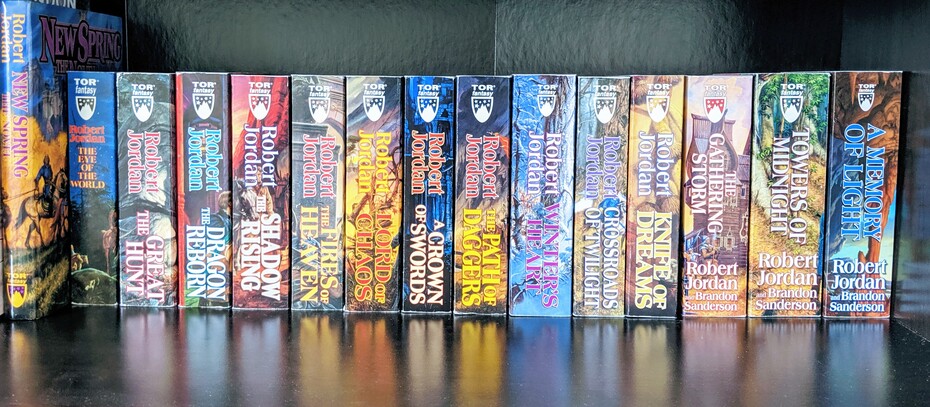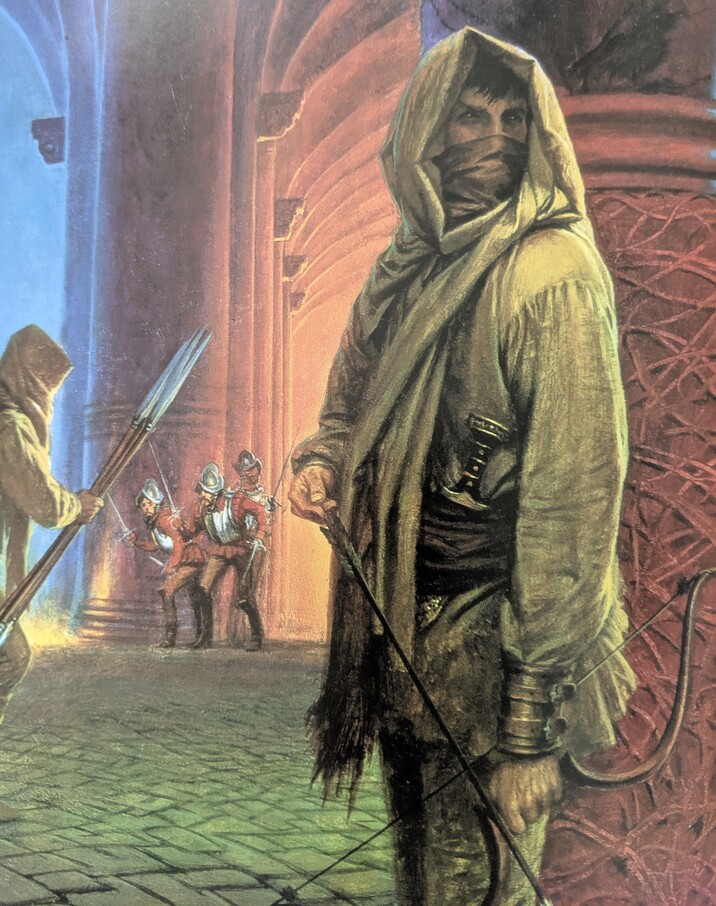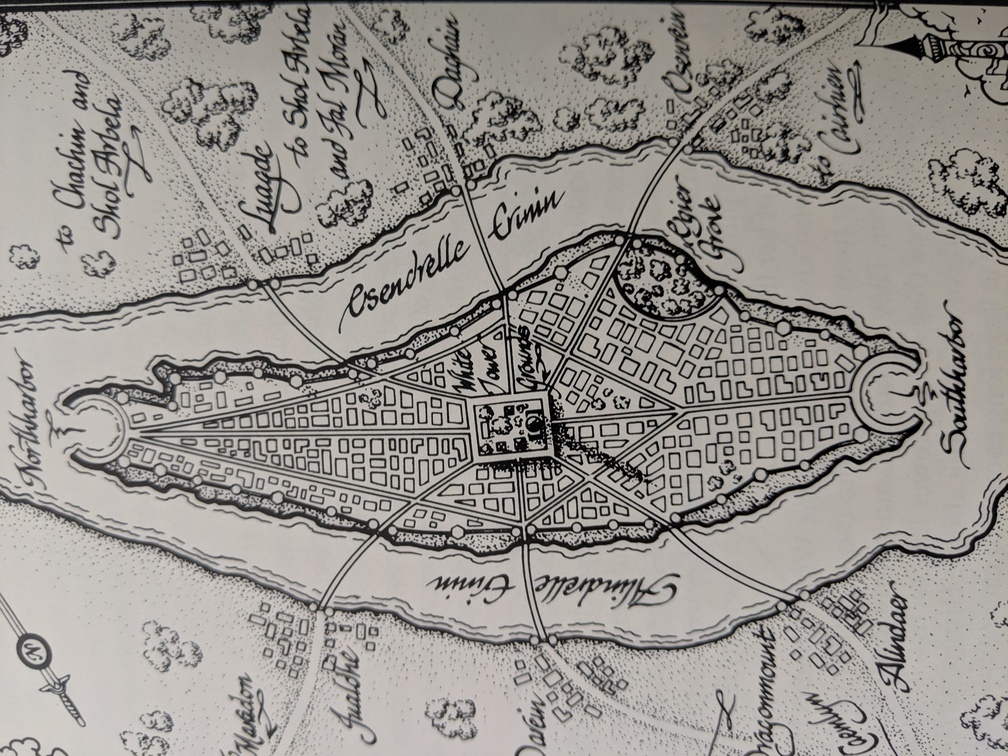Wheel of Time
the longest reading journey of my life

The Wheel of Time turns, and Ages come and pass, leaving memories that become legend. Legend fades to myth, and even myth is long forgotten when the Age that gave it birth comes again.
There are no beginnings…
The Wheel of Time was written over 29 years, from 1984 - 2013, and it was written by two authors–primarily Robert Jordan until his death, and finished by Brandon Sanderson. For that reason and others, it's one of the most remarkable works of fantasy to have been written.
For my part, I read(technically listened on Audible) the series between the summer of 2017 until the end of 2018, roughly a pace of 1 book per month. I listened to 4.5 million words, taking roughly 460 hours of listening to get through. Every day I visited the world, picking back up with the Ta'averan, the Aes Sedai, and continued on the epic-est of epics.
This blog post will be a vain attempt to summarize my thoughts on the series. However, there are many much more complete blogs that serve this purpose. My favorite is this one: https://www.tor.com/series/wot-reread/ Nevertheless in my quiet corner of the internet I set down my own thoughts for the record.
…but there are spoilers
(You've been warned)
OK, right off the bat!
Favorite Parts
- Favorite Quote: "Death is lighter than a feather, duty is heavier than a mountain."
- This is just a badass quote, but throughout the series the quote becomes increasingly meaningful, as the obligations of Rand pile on.
- Favorite Chapter: Veins of Gold (TGS Ch. 50)
- This chapter reads like poetry. The imagery is vivid, there's magnitude to every moment in this scene, and it resolves an enormously crucial question in the book. What's the point. The answer is a cliche, delivered with spine-chilling seriousness. It's a mountain-top moment, and even for nothing else, this was worth the journey to see. Also, this was foretold way back in book ONE!
I am here.
At the end of time,
when the many become one,
the last storm shall gather its angry winds
to destroy a land already dying.
And at its center, the blind man shall stand
upon his own grave.
There he shall see again,
and weep for what has been wrought.
- from The Prophecies of the Dragon, Essanik Cycle.
- Favorite Book: A Memory Of Light.
- The series had a few standout books, but the bookends are my favorites, and AMOL brings the series beautifully to an end. Brandon Sanderson was the right author to choose to follow through with RJs work.
Set and Setting
This series affected my daily life, every day I would listen to a minimum of half an hour. My head was wrapped up, between two tiny airpods, in another world.
WOT is set in a proper medieval age. It's everything there is to love about Tolkien, with pipes, fishing, dodging Trollocs, battling, and scheming. Jordan has a gift for imagery, and he weaves it in everywhere. Jordan's metaphor of "threads of the pattern" suits a description of his own work. Jordan makes stories like a tapestry, meticulously weaving each word into the pattern, whether it's the dual fireplace (insert quote from The Great hunt). Some authors build stories impasto, giving a feeling of the background, rather than the specifics, but Jordan is a detailed painter.
My favorite moments were listening to this in Alaska and in Tahoe. There's something about being in the outside, following great battles and listening to adventures while you find your own.
Why the length mattered
Throughout the reading I gaped, gasped, laughed, and screamed "NO" at the author, for both the writing's quality and horribleness (re: obsession with breasts that borders on the problematic. Of course, when walking across a continent, any grain of sand can become problematic, since you'll rub against it a million times). There is certainly technical skill that accomplishes some of this, but I think it's because after 14 books, I truly cared about the characters, the world that was at stake, and on a more meta- note, I cared about the series being good. And it's that last point that I'd like to invest a bit in here. The preceding affections are normal for the course of a book, although certainly I cared more after three books than two, and so on. But after five and six books, I started really caring about how the author did his job. I was extra-delighted by transcendentally awesome scenes, for being 6 books into a series is like being 10 miles into a hike, you know that many people have spurned this trail or backed out by now. You know that anything from here on out is special–rarely seen by human eyes. And WOT delivers moments like this–there are countless vistas that are both breathtaking and impossible to describe(adequately).
And similarly, it's devastating when the author does something daft. For instance: books 10 & 11. Rand forming a gratuitous harem. Every Elaine Trachand monologue. Y'know, the little things.
Poignancy is built by interrelating concepts coming together. The authorial power of having 13 books behind you when building a battle.
Ta'averan as an interesting mechanism to allow for protagonist protection… Explains the 'luck' of the protagonist.
Time as a circle
How much Rand al'Thor loses (right arm, vision, he's wounded irreparably twice,) Perrin loses his entire family Matt loses his eye
Favorite moments: On top of dragonmount(and the chapter previous), in shailgoul(sp?), When Lan takes on Demondread (sp?), when balefire was announced, when Rand is in Shadar Loguth fighting the Forsaken (with balefire crossing), when Rand almost kills his Tam al'Thor,
The baddest creatures (Trollocs, Faydes, Mashadar, ..)
The way the R.J. had to "signal" to the readers certain info that they may have forgotten. He repeats certain mechanisms for the benefit of the reader.
What's the difference between RJordan and BSanderson's writing styles?
All of the aphorisms that Jordan invents for the characters (there must be 100+ fish metaphors for Swan)
Favorite quotes(will take some work): Death is lighter than a feather, duty is heavier than a mountain.
The beginning section, which is not the beginning or end, there are no beginnings or endings to the wheel of time. But it was A beginning.
The Wheel of Time Turns
TWOT is a gargantuan epic, spanning ~12,000 paperback pages, 4.5 million words, taking roughly 460 hours of listening to get through.

The series is enough for a life's work, although Jordan only started writing at the age of 291.
For those tentative uninitiated. Please briefly divert your attention to Page 1 of The Eye of The World and read the story that follows.
This writing contains spoilers, and it assumes the reader has finished the series. It's meant to excavate and enshrine some memories from the series, and though I'll attempt to make it readable, there's a ton of insider-Stones knowledge that can only be accrued through TWOT.
OK.
The Wheel of Time starts neatly in a previous age, placing you in the midst of a confusing scene, with the Dragon's demise. This character will become a Myth in the Third Age, though this is unknown. The following chapter follows Rand, The Dragon Reborn.
Ishmael development
Elan was the friend of the Dragon, then Ishamael to betray and witness the downfall of Lews Therin. Then crazed he took on the name of Ba'Alzaman, dealing the fateful blow to Rand's side.
After dying he was resurrected with a new name: Moridin. As Moridin, he faced Rand in the Last Battle.
Rand's development
Rand is an earnest, innocent country kid.
When the yolk of the Dragon is placed on him, he initially rejects it. Just like his parentage, he simply denies. As life progresses though and evidence mounts, he begins to run from it.
Destined to go mad and die. Destined to die at the end of time.
Becoming a King, a King of Kings, becoming nobility and surrounded by power-hungry people, determined to use him. Constantly used. By Aes Sedai, by …
He kept repeating a mantra, listing every woman who had died by his hand(indirectly or not) to it. Every woman burned into him, lacerating him.
The herons branded into his palms.
Twin dragons on his arms.
The unhealable wound in his side, haunting Rand for the rest of the series.
Losing an arm.
By the time that Rand arrived at the Last battle, he was badly damaged. Even his feet were cut when entering the Dark One's Prison. In game-terms, he was at half HP or less.
Mat's development
The authorial power of having 13 books behind you when building a battle.. the reader investment.
Ta'averan as an interesting mechanism to allow for protagonist protection… Explains the 'luck' of the protagonist.
Time as a circle
How much Rand al'Thor loses (right arm, vision, he's wounded irreparably twice,) Perrin loses his entire family Matt loses his eye
Favorite moments: On top of dragonmount(and the chapter previous), in shailgoul(sp?), When Lan takes on Demondread (sp?), when balefire was announced, when Rand is in Shadar Loguth fighting the Forsaken (with balefire crossing), when Rand almost kills his Tam al'Thor,
The baddest creatures (Trollocs, Faydes, Mashadar, ..)
The way the R.J. had to "signal" to the readers certain info that they may have forgotten. He repeats certain mechanisms for the benefit of the reader.
What's the difference between RJordan and BSanderson's writing styles?
All of the aphorisms that Jordan invents for the characters (there must be 100+ fish metaphors for Swan)
Favorite quotes(will take some work):

Death is lighter than a feather, duty is heavier than a mountain.
The beginning section, which is not the beginning or end, there are no beginnings or endings to the wheel of time. But it was A beginning.
Sadness

It's difficult to move on. For the past couple months, I've puttered in my car, to and fro work, with the odd sensation of having nothing to listen to. With nothing that I want to listen to.
I lived convincingly in a world of ye-old-time, a medieval era where swords were symbols of power, where distances meant something (until they didn't), where local provinciality made folks different, meaningfully different. In TWOT, the Seanchan with their rigid class structures and honor-based system, despise the mainlanders. The Aiel meanwhile, scorn the wetlanders, and view their soft living as proof of weakness. The Two-Rivers folk, find the bustle of city-life baffling. "Noone ever leaves the Two-Rivers".
Fires were stoked, inns were stay at, and the inn walls were dark with the long-years of pipe smoke in the common room. Wagons were ridden, horses galloped, and adventures had on the road–sleeping through cool nights on the ground. Wrapped in blankets near a cindering campfire.
Money was in the form of metal coins, and fashion was locally done, hyperlocally knitted by some shopkeep. Rivers were forded, corrupt ferrymen intimidated, street-toughs(footpads) were a genuine threat.
The vernacular is delightful. Some of their argot:
Light!
Bloody ashes.
Mother's milk in a cup!
Creator shelter us.
The point of all this. What is the point?
It's easy enough to summarize a book's setting, after-all it is historical, but the point is that Robert Jordan successfully lets you live and explore this world for a long stay. He puts your feet down, for more time than I've ever spent somewhere else.
The sheer volume means a difference in kind… A TV series that attempts to put you somewhere for longer would need 900 episodes. I've never done anything like this, never spent so much time in a foreign land, and I feel deeply affected by it.
There's not a concrete "Good" to be taken here, no lesson to be checked off on a rubric. Much in the way of travel, it just makes your scope of life larger. The impact isn't whole-enough to be summed. It's fertilizer in the soil. I draw parallels between characters, between types of people and life. My conception of a hero is more defined. The contours of his character aren't so constrained.